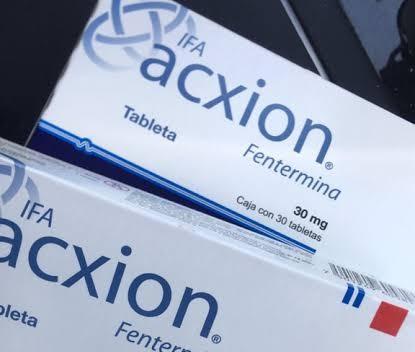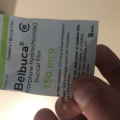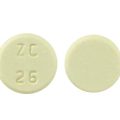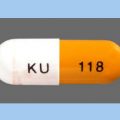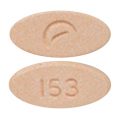What Is Acxion?
Acxion is a brand of phentermine, it is a prescription weight loss medication produced by Mexican Ifa Celtics. Phentermine was approved by the FDA in 1959 for short-term use of up to 12 weeks for people older than 16. Acxion is a controlled substance due to its chemical similarities to the stimulant amphetamine — making it available only with a prescription.
Your doctor may prescribe Acxion if you’re obese, meaning that your body mass index (BMI) is greater than or equal to 30. It may also be prescribed if you’re overweight with a BMI greater than or equal to 27 and have at least one weight-related condition, such as high blood pressure, high cholesterol, or type 2 diabetes.
How Does Acxion Work?
Phentermine belongs to a class of drugs called “anorectics,” also known as appetite suppressants. While the exact mechanisms behind the appetite-reducing effects of phentermine remain unclear, the drug is thought to act by increasing neurotransmitter levels in your brain. Neurotransmitters are your body’s chemical messengers and include norepinephrine, serotonin, and dopamine. When your levels of these three chemicals increase, your feeling of hunger decreases.
Taking Acxion helps suppress your appetite, thereby limiting how many calories you eat. Over time, this can lead to weight loss. However, you may build a tolerance to the appetite-suppressing effects of Acxion within a few weeks. In that case, you should not increase your dose of the drug but stop using it altogether.
How long does Acxion last in the body?
Acxion has a half-life of about 20 hours, which is the time it takes for half of the dosage to be metabolized by the liver or excreted unchanged in the urine. It takes five to six half-lives for Acxion to be completely eliminated from your system.
A typical dose of Acxion is one capsule in the morning before breakfast. Acxion capsules contain the active ingredient phentermine hydrochloride, of which 70% to 80% is excreted in the urine unchanged. The rest undergoes N-oxidation and N-hydroxylation to form corresponding metabolites. One dose of Acxion can last up to two days in your body before it is totally cleared out.
How effective is Acxion for weight Loss?
Several clinical studies have proven that phentermine can boost fat loss. The expected average weight loss with phentermine use is 5% of your initial body weight. Yet, over 12 weeks, it can be as high as 10%. This equates to a weight loss of 10–20 pounds (4.5–9 kg) for a 200 pound (90.7 kg) person. In a meta-analysis of six studies, people who took the average dose of 27.5 mg of phentermine for 13 weeks lost an average of 13.9 pounds (6.3 kg) compared to 6.2 pounds (2.8 kg) in placebo groups.
While phentermine has been shown to be effective for weight loss, it may work better when combined with topiramate. In users, this weight loss has translated to a significant decrease in waist circumference, improved insulin sensitivity, and blood sugar control, as well as favorable effects on triglyceride and cholesterol levels.
How to use Acxion
Take this medication by mouth as directed by your doctor, usually once a day, 1 hour before breakfast or 1 to 2 hours after breakfast. If needed, your doctor may adjust your dose to take a small dose up to 3 times a day. Carefully follow your doctor’s instructions. Taking this medication late in the day may cause trouble sleeping (insomnia).
If you are using sustained-release capsules, the dose is usually taken once a day before breakfast or at least 10 to 14 hours before bedtime. Swallow the medication whole. Do not crush or chew sustained-release capsules. Doing so can release all of the drug at once, increasing the risk of side effects.
If you are using the tablets made to dissolve in the mouth, the dose is usually taken once a day in the morning, with or without food. First, dry your hands before handling the tablet. Place your dose on top of the tongue until it dissolves, then swallow it with or without water.
The dosage and length of treatment are based on your medical condition and response to treatment. Your doctor will adjust the dose to find the best dose for you. Discuss the risks and benefits, and the length of phentermine treatment, with your doctor. To get the most benefit, take Acxion regularly, exactly as prescribed, and for as long as directed by your doctor. To help you remember, take it at the same time(s) each day.
If you suddenly stop using this medication, you may have withdrawal symptoms (such as depression, severe tiredness). To help prevent withdrawal, your doctor may lower your dose slowly. Withdrawal is more likely if you have used phentermine for a long time or in high doses. Tell your doctor or pharmacist right away if you have withdrawal.
Though it helps many people, Acxion may sometimes cause addiction. This risk may be higher if you have a substance use disorder (such as overuse of or addiction to drugs/alcohol). Do not increase your dose, take it more often, or use it for a longer time than prescribed. Properly stop the medication when so directed.
Acxion may stop working well after you have been taking it for a few weeks. Talk with your doctor if this medication stops working well. Do not increase the dose unless directed by your doctor. Your doctor may direct you to stop taking this medication.
What are the side effects of Acxion?
Acxion is designed for short-term use only, as there are no long-term studies on its safety. The most commonly reported side effects of Acxion include:
- Dry mouth
- Sleeping problems
- Dizziness
- Heart palpitations
- Flushing of the skin
- Fatigue
- Constipation
- Irritability.
You shouldn’t take Acxion if you have heart disease, hyperthyroidism, glaucoma, or if you’re pregnant or nursing. Acxion should also not be prescribed in combination with monoamine oxidase inhibitors (MAOIs), a class of medications used to treat depression.
Your doctor will determine whether Acxion is appropriate and safe for you.
What to eat while on Acxion
While Acxion can be a powerful weight loss aid, the only proven way to shed weight and to keep it off in the long term is cultivating healthy lifestyle behaviors. Without making the proper changes, it is likely that you’ll gain back the weight you lost and possibly more once you stop taking phentermine.
A comprehensive lifestyle change includes:
A reduced-calorie diet: If you have excess weight to lose, eat 300–500 fewer calories per day. A registered dietitian can help you tailor this range based on your preferences and goals.
Prioritize nutrient-dense foods: Nutrient-dense foods — such as fruits and vegetables — are relatively low in calories and high in nutrients, such as fiber, vitamins, and minerals.
Increase physical activity: Guidelines recommend a minimum of 150 minutes per week of moderate aerobic exercise, such as brisk walking or running.
Behavioral strategies: Behavior changes includes regular self-monitoring of food intake, physical activity, and your weight, plus making adjustments as needed. Also Read: Terfamex

